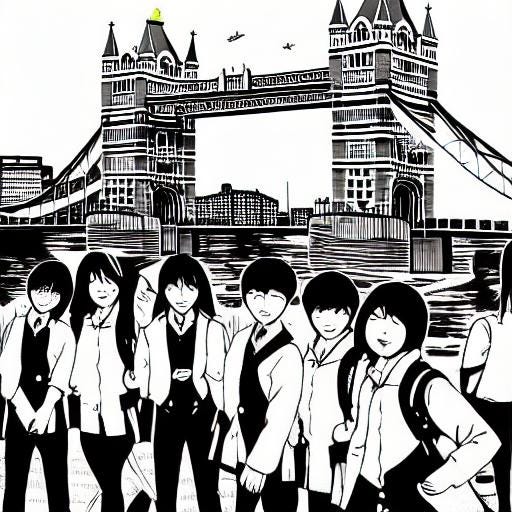Should I take my English language students on a study tour abroad?
The Bulletin (Issue 50)
I’ve just returned from a study tour to the UK, this time with 13 of our eikaiwa students, and thought I might write about what I’ve learnt from four such trips abroad and how they might benefit you, dear fellow Freetalker (self-employed English teacher in Japan).
Consider this the first in the series, answering the most basic question: why do it at all? I’ll give you three broad arguments in favour, which you could rearrange in order of importance to you:
The educational case. A trip abroad at the right age, say from 12 to 18, is life changing. If you have been doing your job as an eikaiwa teacher, trying to instill a love of English as a way to communicate and engage with the world rather than as a series of ever-more frustrating grammar rules, then there is simply nothing better than using English outside Japan: this is the real thing. Even just on technical details, a trip abroad is a massive shot in the arm for the budding English speaker. A week in London, say, means at least 12 hours a day of exposure to English, about equal to two years of weekly lessons in Japan. Add to that the cultural experiences, the chance to meet foreigners of the same age and countless other first-time experiences, the memories of the trip will last a lifetime.
The business case. The trip itself should generate you a tidy sum, and rightly so. Running the tour yourself, planning it, buying the tickets, sorting out the accommodation and being responsible for your attendees’ education and safety 24/7 cannot come cheap. It requires a lot of work, stress and risk that deserves compensation, which you have to factor in to how much to charge (more on that in future posts). But the business case extends beyond the immediate profit. Consider the priceless positioning value of running annual (or more frequent) trips abroad. You are now so far out of the league of rival chain eikaiwa, juku and your typical coffee-shop / living room tutor, you have become THE authority on English education in your area. And consider the promotional value of all those Instagram shots of happy students. YOUR happy students.
The personal case. I’ve spoken recently about the feeling of being trapped teaching English in Japan, well there’s nothing like the antidote of a successful trip back to your home country. Work doesn’t have to be miserable, it’s perfectly OK if your study tour also finances a trip back to your homeland so friends and family can see you briefly. While students raced around the British Museum, my wife and I had coffee with two old friends we hadn’t seen in years. My sister and her young family were able to stay at the same Airbnb with us one weekend and we all spent time together with the Japanese kids, to the benefit of all involved. It’s a study trip, not a guilt trip.
Next week, I’ll look into more detail about how to make a study tour abroad a success, what pitfalls to watch out for, and the nitty gritty of what you have to do to make it happen.
Until then,
Patrick
Tax advice
I’ve written before about getting your finances in order, but refrained from writing about taxes for the self-employed, so you might find this article useful if you want specific advice.

The Free Talk Staffroom podcast is on iTunes and Spotify
Hey, did you know you can listen every Friday to new episodes of The Free Talk Staffroom on iTunes and Spotify? It’s true, fellow Freetalkers. You can of course just continue to watch and listen to it in the Friday email or right here, as usual.



My first trip to London fell on my 15th birthday. As I took the double decker bus, I was able to explain that to the conductor, who promptly charged me the adult fare - and wished me a Happy Birthday! Something I was very proud of. I totally agree that getting kids to an English-speaking country at an early age will make a difference.
I'm looking forward to this series. Thanks!